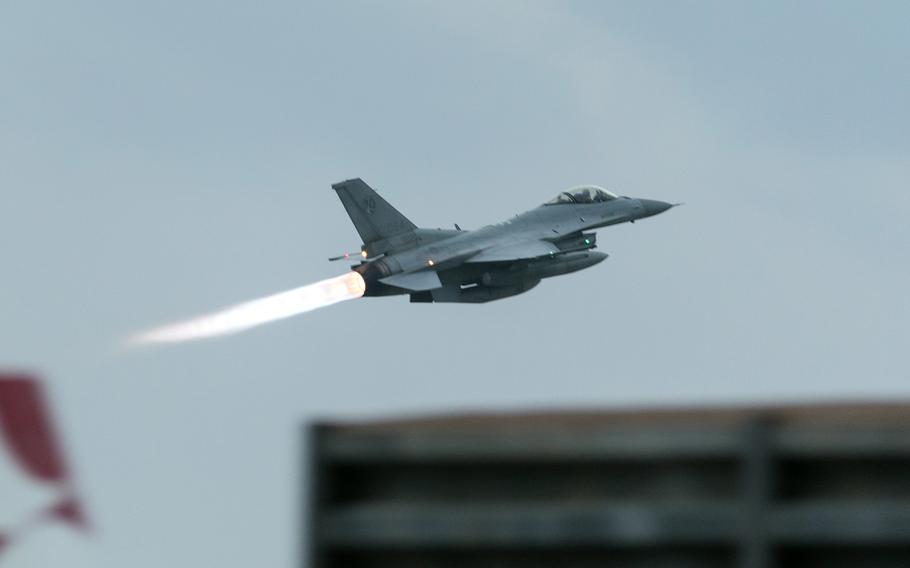
A South Korean air force F-16 Fighting Falcon takes off from Gwangju Air Base, South Korea, in April 2023. (Tyler Harmon/U.S. Marine Corps)
SEOUL, South Korea — South Korea scrambled fighter jets Friday after six Russian and five Chinese military aircraft entered the country’s air defense identification zone.
The foreign aircraft approached the zone between 9:35 a.m. and 1:53 p.m., crossing into the buffer near the southern and eastern coasts, according to a statement from the South’s Joint Chiefs of Staff.
Air defense identification zones are buffers designed by some nations to monitor and identify approaching aircraft before they enter national airspace.
South Korea’s military identified the foreign aircraft before they entered the zone and dispatched fighters in response. The Joint Chiefs did not disclose how many aircraft were deployed.
China and Russia have been frequently accused of violating their neighbors’ airspace or air defense zones.
On July 30, South Korean and Japanese fighter jets intercepted two Russian Tu-95MS Bear-H strategic bombers flying over international waters between Seoul and Tokyo. The missile-armed aircraft were escorted by “foreign fighters,” Russia’s Ministry of Defense said at the time.
On Aug. 26, a Chinese Y-9 surveillance plane entered Japanese airspace, prompting Japan’s then-defense minister, Minoru Kihara, to call the act “completely unacceptable” and file a formal protest through diplomatic channels.
In another incident on Dec. 14, South Korea scrambled fighters after four Russian and two Chinese warplanes entered its buffer zone without prior notice. The South’s Ministry of National Defense lodged complaints with the Russian and Chinese embassies in Seoul.
South Korea’s ties with Moscow have deteriorated amid recent reports of North Korea troops fighting alongside Russian forces in Ukraine. More than 10,000 North Koreans were sent to Russia’s western border to aid in its invasion, according to the U.S. and South Korean militaries.
North Korean leader Kim Jong Un and Russian President Vladimir Putin met in Pyongyang in June, pledging mutual military support in the event of war. The U.S. and South Korea have also accused the North of supplying ammunition, including ballistic missiles, to Russian forces.
South Korea has condemned Russia’s invasion of Ukraine and has provided nearly $400 million in humanitarian and financial aid to Kyiv this year.